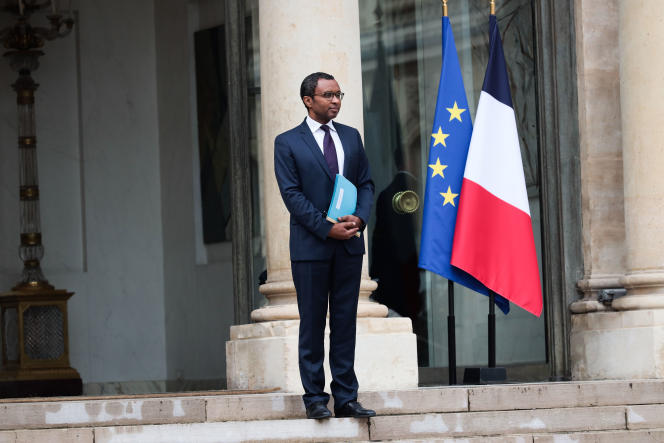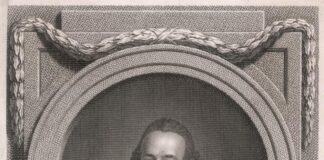Minister of National Education for less than a week, historian Pap Ndiaye has been the target of attacks from the far right. Academic, French specialist in the black condition and supporter of consensus, the choice of his appointment is a break with his predecessor, Jean-Michel Blanquer, who denounced “wokism” and “Islamo-leftism”.
“The woke ideology and anti-cop theses will now be encouraged in our schools”, denounced on Twitter, Hélène Laporte, MEP of the National Rally (RN), on May 20, the day of Mr. Ndiaye’s appointment. Like her, Marine Le Pen hastened to attack the teacher-researcher. Acting RN President Jordan Bardella accused him of being “a racialist and anti-cop activist”. Accusations also taken up on Twitter by the deputy Les Républicains (LR) Eric Ciotti who denounced a “terrifying” appointment.
Finally, the “fachosphere” also did not miss the opportunity to attack the new minister directly. From May 20 to 24, the far-right site Fdesouche devoted no less than nineteen articles to what it describes as a “black communitarian”.
Truncated quotes, decontextualized videos or outright errors… the many attacks suffered by the former director of the Porte-Dorée palace in Paris have proven to be caricatural and relatively far from the nuanced speeches of Pap Ndiaye in the past.
On the day of his appointment, the far-right identity site Fdesouche widely relayed false information according to which Pap Ndiaye had participated in a meeting prohibited to whites in 2016. Invited to Franceinfo on Tuesday May 24, Jordan Bardella also took up this infox that “Pap Ndiaye participated in 2016 at the University of Paris-VIII, in Saint-Denis, in a meeting prohibited to whites”.
Why it’s wrong
On Friday April 15, 2016 at Paris-VIII University in Saint-Denis (Seine-Saint-Denis), Pap Ndiaye was indeed the guest of a round table with political scientist Françoise Vergès and academic Maboula Soumahoro on the condition black in France. In full mobilization against the labor law, a think tank “organized in non-mixed” had held “Non-white Words”, a week of debates and conferences on the theme of “questions of race”. But contrary to what far-right activists claim, if the group at the base of the organization was single-sex, the conferences were open to everyone, as the leaflet from the time still attests.
A report published in 2017 in the Journal des anthropologues also attests to this. “As regards ‘Non-white Words’, the very title of the events demonstrates their originality: if the workshops are open to everyone, the group on its initiative as well as the speakers invited for the opportunity are all non-white‑he‑s, wrote two students from the University of Paris-VIII. The initiative defends the principle of non-mixing both as a mode of action and a tool for struggle. »
In 2017, in an interview with Le Monde, Pap Ndiaye had also positioned himself rather against single-sex meetings, which are regularly controversial:
“Even if it is logical that specific associations (feminist, gay, Jewish, racialized people, etc.) attract the majority of the people concerned in the first place, it is nevertheless vital for them to welcome with open arms all people of good will. »
On Franceinfo, Jordan Bardella spoke out against the new minister, accusing him of conveying “anti-republican, anti-French and racialist ideologies”, while “France is one of the least racist countries in the world”. “You cannot be a Minister of the Republic and speak of a ‘structural racism’ in French society,” he said, referring to old comments by the historian.
Why it’s decontextualized
However, Jordan Bardella seems to ignore the full nuance of Pap Ndiaye’s original quote. Asked about the concept of “State racism”, the specialist in the social history of the United States estimated, in December 2017, in an interview with Le Monde, that the notion was not relevant to characterize the French situation. “‘State racism’ presupposes that state institutions are at the service of a racist policy, which is obviously not the case in France,” he said. “On the other hand, there is indeed a structural racism in France, by which institutions like the police can have racist practices”, he nuanced, before concluding: “There is racism in the State, there is no there is no state racism. »
For his detractors, the academic would be “an anti-cop activist”. To support her remarks, MEP RN Hélène Laporte shared a short video extract in which Pap Ndiaye speaks of an “attitude of denial concerning police violence in France”.
Why it’s decontextualized
This passage is taken from an interview of almost ten minutes broadcast on France Inter on June 4, 2020, ten days after the death of George Floyd, in the United States. Asked about “the silence of the highest French authorities on the subject” of the American uprisings in the face of racist police violence, the historian explains that he is not surprised: “The attitude of denial with regard to police violence in France is quite classic and for a long time. »
He adds, however, that this denial is “beginning to crumble”, citing in particular a document from the Defender of Rights published a few days earlier and which denounced a case of “systemic discrimination” suffered by black inhabitants and of North African origin on the part of of police officers from the 12th arrondissement of Paris.
Pap Ndiaye then clarifies:
“We can no longer simply send this question to another country as if we were miraculously protected from a reality which is however obvious, which is that of a part of French youth: the checks on the facies, the difficulties with the police and sometimes violence. (…) I regret that the French authorities are stiffening in a refusal to compare, and to consider ways of improvement. »
He particularly regrets a degraded relationship between the police and young people from working-class neighborhoods and the logic of numbers imposed on the police. As so often, the intellectual remains nuanced in his remarks, far from the “anti-cop” posture described by his opponents, and calls for a real reflection on the issue:
“The police are doing necessary and obviously important work. But should we conclude that all is well and that nothing needs to be reformed? Obviously not. »
In his criticism of the Minister of Education, Jordan Bardella also claimed that Pap Ndiaye had “compared the French police in Vichy to the police of today in the suburbs”. The acting president of the RN refers to a video extract from an interview that the researcher had given to Mediapart on June 8, 2020. The extract in question, as it was shared in far-right spheres, leaves to think that the historian compares the current police force to that of Maurice Papon.
Why it’s wrong
This excerpt is totally taken out of context since the historian is in fact questioned about the legitimacy of comparing the American and French situations on racial issues. He then returns to the historical differences between the two countries, while defending the idea of comparison: “Comparing that is not to say that it is the same thing. (…) As soon as we look at differences that are generally perceived as irreducible, we realize that these differences do exist but that they are not as clear as that. »
It is then that the teacher-researcher recalls that in France, too, “forms of colonial repression” were practiced by the French police during the Algerian war, or during the Occupation with “the roundups of Jews operated by the French police in large cities such as Paris or Bordeaux under the authority of Maurice Papon”.
Contrary to what Jordan Bardella asserts, Pap Ndiaye does not at any time compare the current French police to that of Vichy. It only recalls elements of the history of France in order to compare it to that of the United States.

















